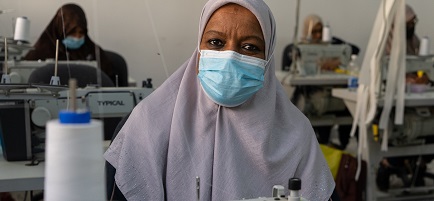
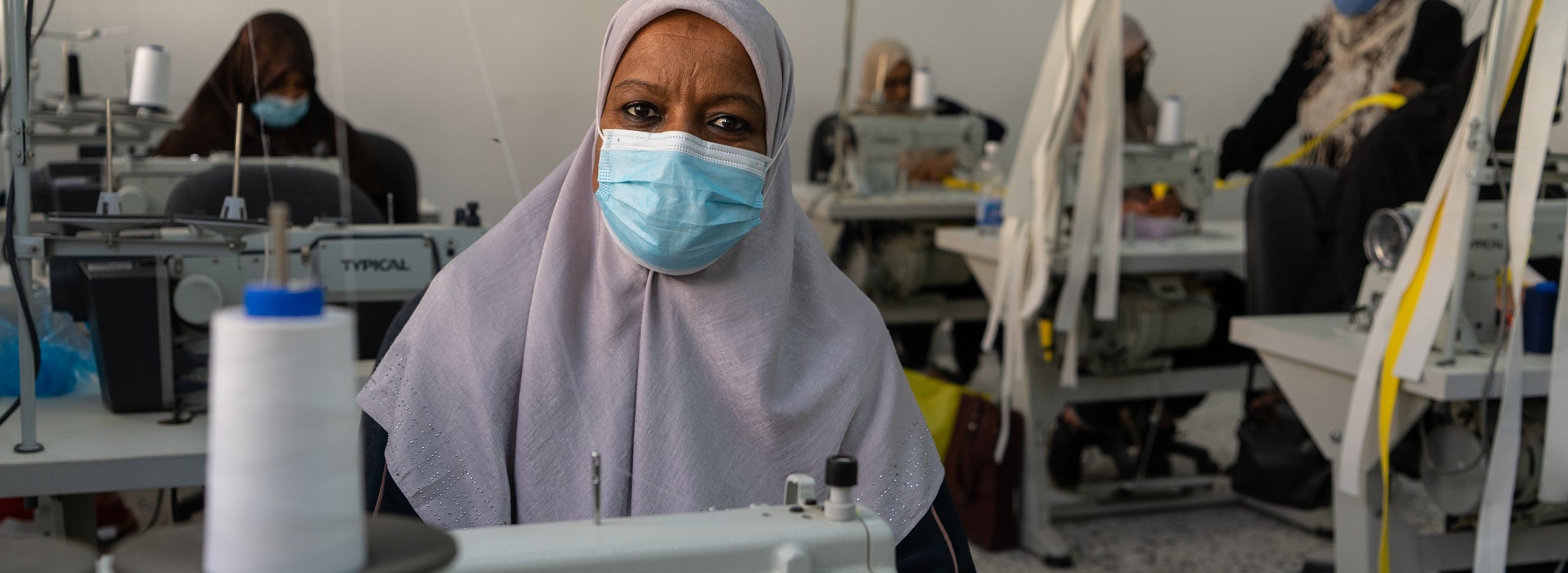
Social development: A place for women’s empowerment
The Women Development and Training Centres in Libya: run by women for women
In Libyan society, women often face disadvantages and are not actively participating to public life. Women’s centres create safe spaces for women where they can chat among themselves, learn new skills, and contribute to change in the process.
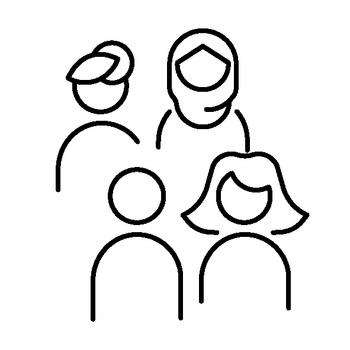
The women entrepreneurs proudly present masks and lab coats they made themselves. It’s Open Day at the Women Development and Training Centre (WDTC) in Hay Al-Andalus, the third-largest Libyan municipality near the capital Tripoli. The women take this opportunity to explain to visitors how they launched their textiles start-up. At the WDTC, they not only learned to sew, but also took part in a business course that enabled them to develop a business model and create a website that they can use to sell their products. With the coronavirus pandemic still ongoing, the entrepreneurs are currently producing and selling personal protective equipment, which is in high demand everywhere. Their range also includes other products such as school uniforms, though. They now visit the WDTC every day and, together with several co-workers, use the sewing machines provided there to earn their own income.
In this southern Mediterranean country, men dominate public life and the labour market. Only eight per cent of them believe that women should leave the house alone. More than two thirds of women have no paid work although their level of education is the same as or higher than men’s.
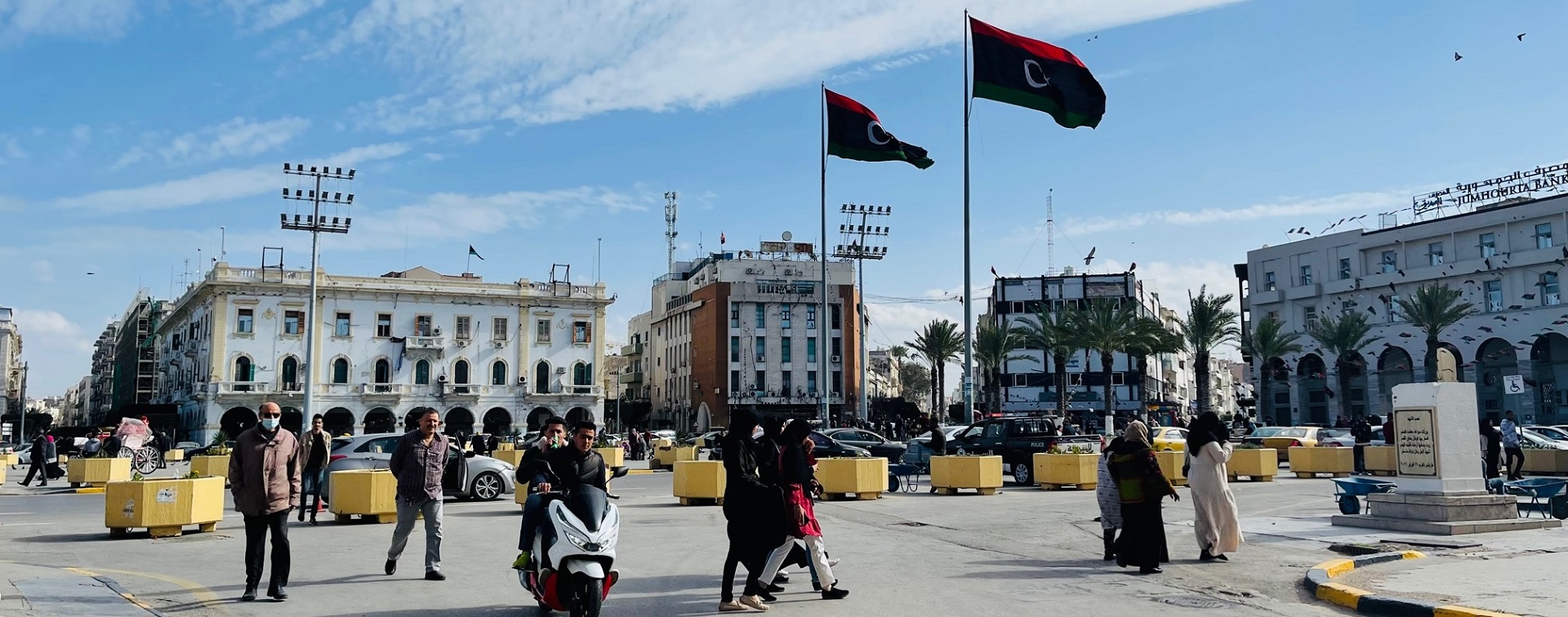
A place to discover new skills and new opportunities
This is why the Deutsche Gesellschaft für Internationale Zusammenarbeit (GIZ) GmbH is setting up WDTCs throughout Libya on behalf of the German Development Ministry (BMZ) and the European Union (EU). The municipal institutions provide a place for women to come together, chat and take part in training courses. By their very existence, the centres promote social change, says Vittoria Capresi, who works for GIZ as an architect: ‘The buildings make women and their needs and demands visible.’
While there is a particular focus on skills such as sewing and garment-making, the women who come to the centres can choose from a wide range of subjects. These include language and IT courses as well as sessions on beauty care and hairdressing. Civil-society organisations also come to the WDTCs to inform local women and girls about their rights. Vittoria Capresi therefore believes that the centres offer a chance to break down social barriers: ‘Women can simply go there and get involved, and in doing so broaden their minds, develop their creative skills and build their self-confidence.’
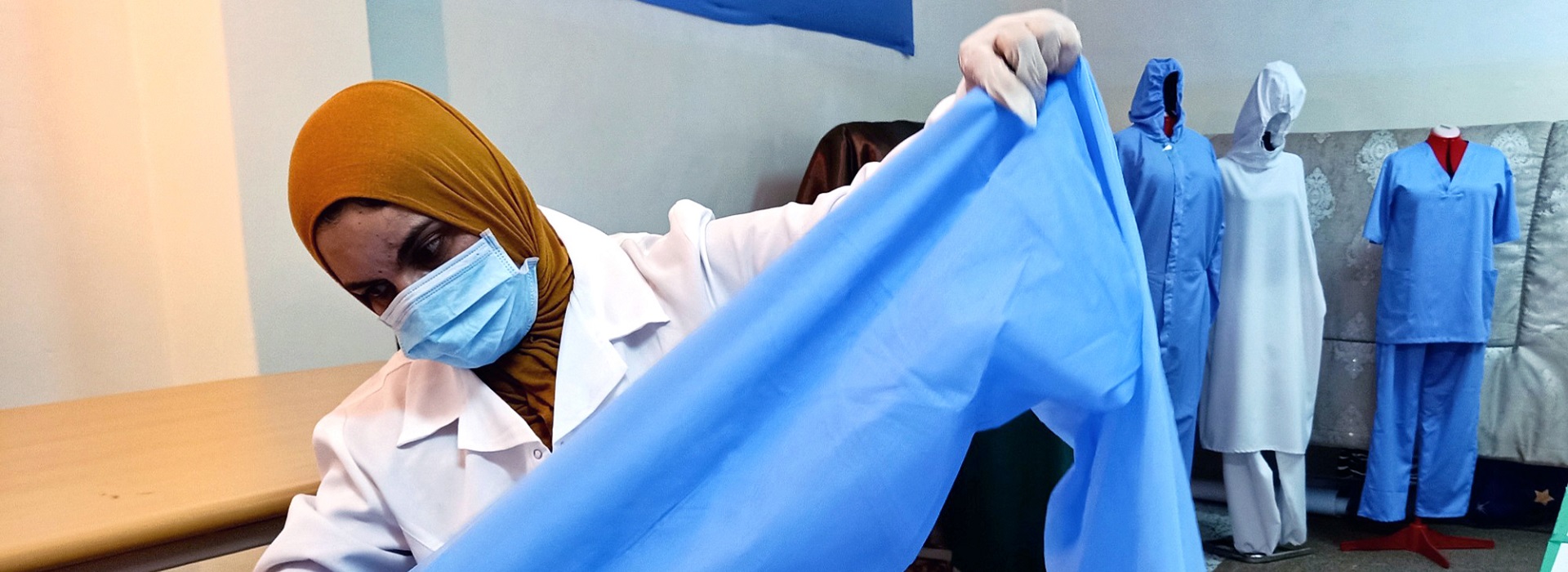
New prospects for social participation
To ensure that the WDTCs are supported by the community, both the authorities and the local people are involved in setting them up right from the outset. For example, the municipality first selects a suitable building and then GIZ comes in to convert it and provide the equipment needed. The locally elected women’s councils are also included from the very beginning as GIZ is training instructors and planning the first courses. This cooperation is crucial because the aim is for the municipalities to take over management of the centres as soon as they are completed. The centres are operated by all-women teams who manage the self-generated budget and work with the women who use the facility to fine-tune the range of courses on offer.
Twelve WDTCs have already been set up throughout Libya, giving women a place to take part in courses every day, sew new textile products or join in fitness activities. The WDTC in the northwestern municipality of Zintan already has almost 300 regular visitors. During the coronavirus pandemic, women from seven WDTCs have turned over 53,000 square metres of fabric into personal protective equipment for health and educational facilities.
And that is just the beginning, because the project is growing. Eight more centres have already been planned. The existing WDTCs are also being continuously developed, drawing on the users’ ideas to create an ever more versatile range of courses. With visible success: more and more women want to join in, and an increasing number of municipalities are now looking to set up their own centre. They too want to be part of the move towards greater equality and to empower women to become more independent.
Last update: March 2022